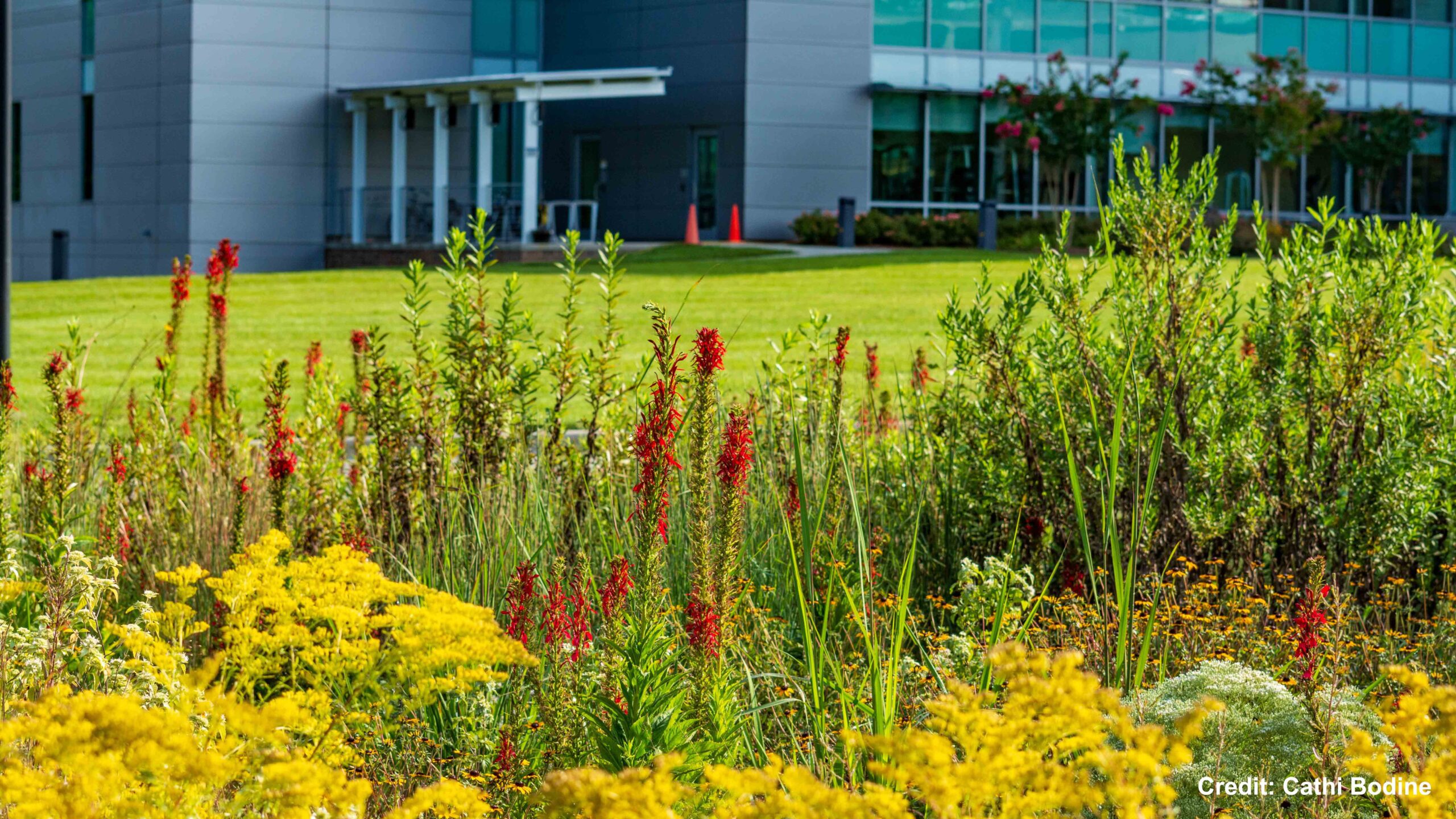
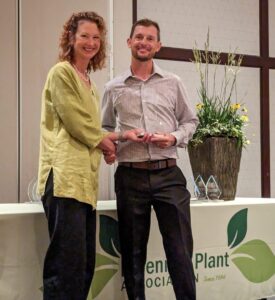 Our Durham, North Carolina landscape management team was recently awarded a Perennial Plant Association (PPA) Landscape Design Award for the design of Syngenta RTP’s Native Prairie Garden.
Our Durham, North Carolina landscape management team was recently awarded a Perennial Plant Association (PPA) Landscape Design Award for the design of Syngenta RTP’s Native Prairie Garden.
Pictured right: Landscape designer Josh Richardson, from Ruppert’s Durham (NC) branch, accepting the PPA Landscape Design Award.
The Syngenta RTP Innovation Center located in Durham, NC is a newly developed commercial campus that originally featured a typical modern commercial landscape, consisting of large expanses of turf, young shade trees, and ornamentals.
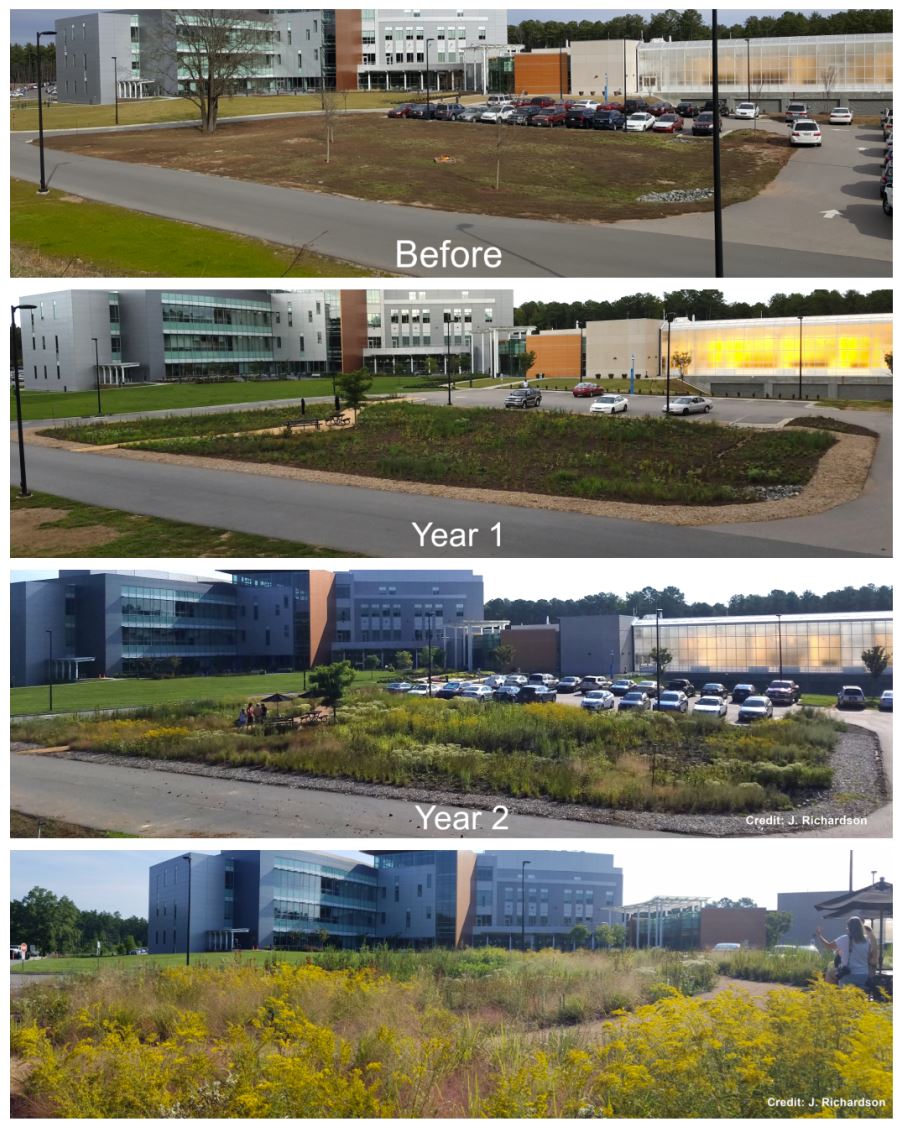 With the goal of introducing native plant species to the campus that would provide a resource and habitat for both birds and pollinators, the Syngenta staff partnered with The Blomquist garden staff from Sarah P. Duke Gardens and Ruppert Landscape to create a native prairie garden. They also aimed to provide outdoor seating and walking paths for Syngenta staff to take in the natural beauty of the landscape. (Read more about Syngenta’s commitment to enhancing pollinator habitats here.)
With the goal of introducing native plant species to the campus that would provide a resource and habitat for both birds and pollinators, the Syngenta staff partnered with The Blomquist garden staff from Sarah P. Duke Gardens and Ruppert Landscape to create a native prairie garden. They also aimed to provide outdoor seating and walking paths for Syngenta staff to take in the natural beauty of the landscape. (Read more about Syngenta’s commitment to enhancing pollinator habitats here.)
The allocated garden area initially faced unfavorable conditions commonly experienced following new construction, including barren soil resulting from the removal of topsoil during the building phase, a sparse planting of juvenile shade trees, and challenges with the grass cover due to difficulties in successful seeding.
With the guidance and seeds provided by the Blomquist’s garden staff, the Syngenta garden club’s many volunteers grew more than 8,000 local eco-type native plants of close to 50 different species of wildflowers and grasses to be incorporated into the design of the native prairie garden. Upon completion, this project helps push the boundaries of how commercial landscapes can benefit local wildlife and pollinators and serves as a model for other commercial campuses to replicate this style of beneficial planting.
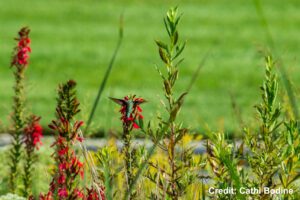 “This was a very fun and intriguing project that gave me the opportunity to work with many varieties of native plant species,” said Joshua Richardson, landscape designer in Ruppert’s Durham, North Carolina branch. “It was fascinating to see the impact this space had on the site. Within the first week, we were seeing a large presence of pollinators and wildlife taking advantage of the new resources and habitat.”
“This was a very fun and intriguing project that gave me the opportunity to work with many varieties of native plant species,” said Joshua Richardson, landscape designer in Ruppert’s Durham, North Carolina branch. “It was fascinating to see the impact this space had on the site. Within the first week, we were seeing a large presence of pollinators and wildlife taking advantage of the new resources and habitat.”
He continued, “I am grateful for the research and collaboration with the Bloomquist Garden staff from Sarah P. Duke Gardens and Syngenta RTP volunteers that helped make this project a success. I am blessed beyond measure to be recognized for this project and the positive impact it has had on the site.”
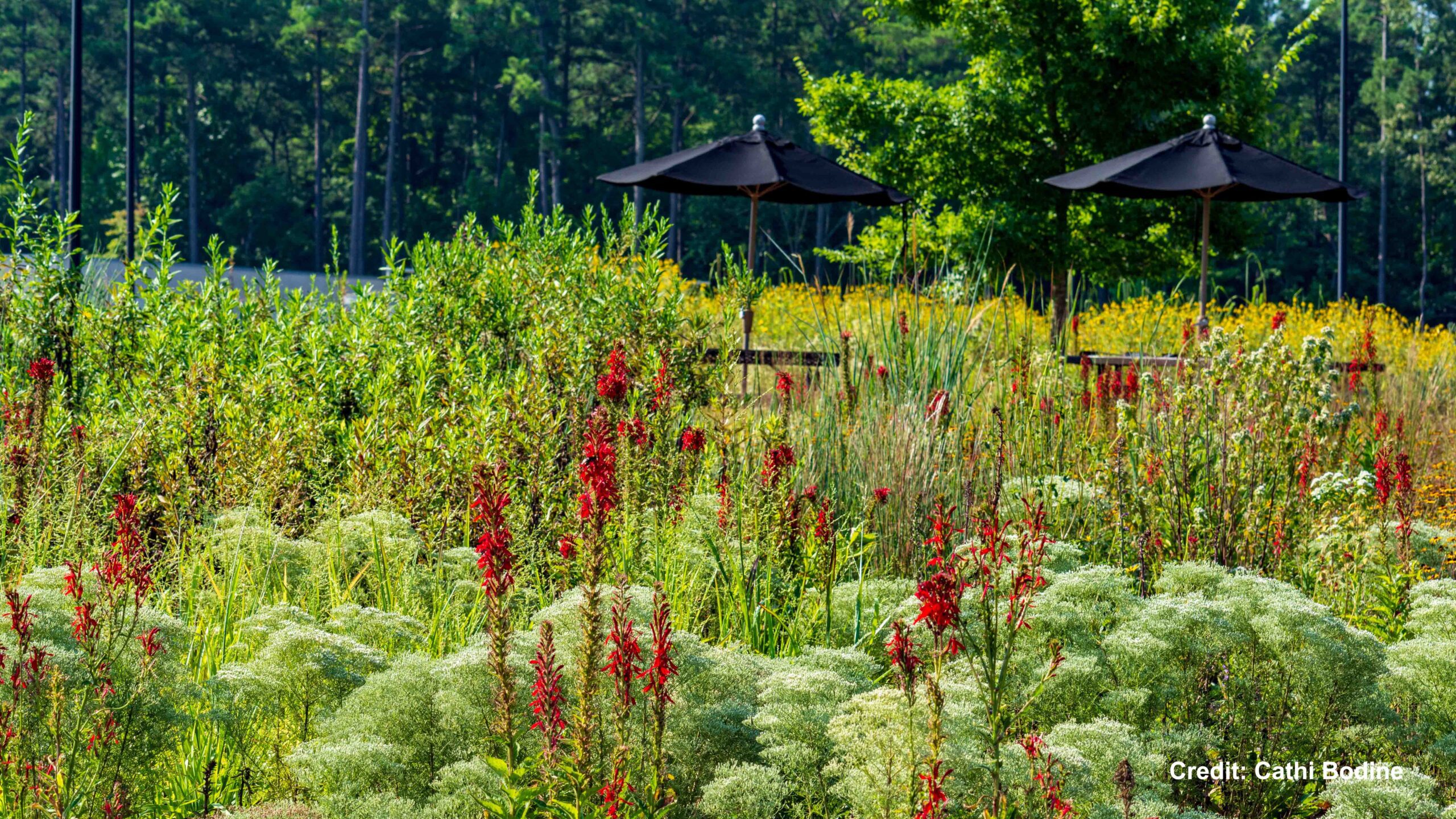
Photo credit: Cathi Bodine